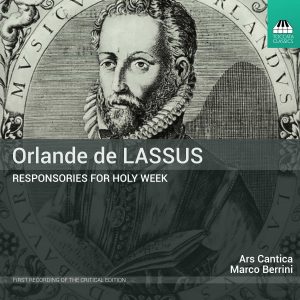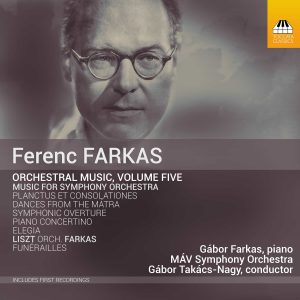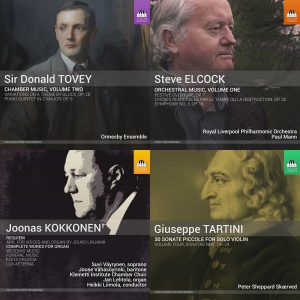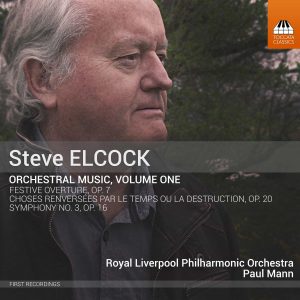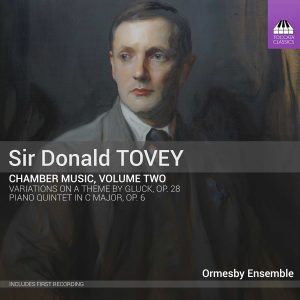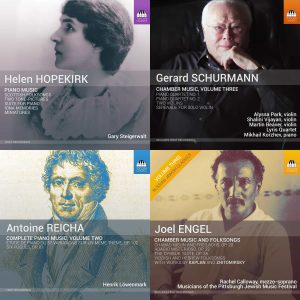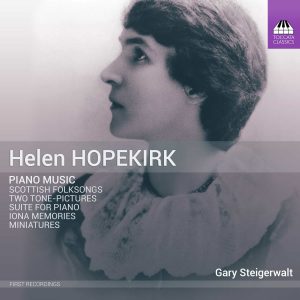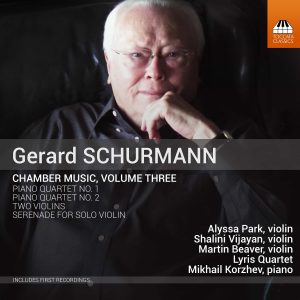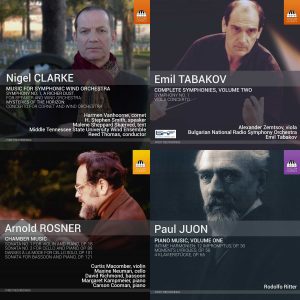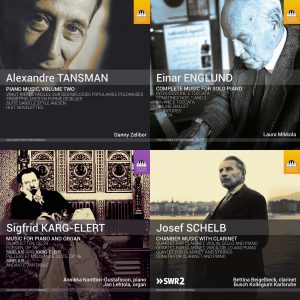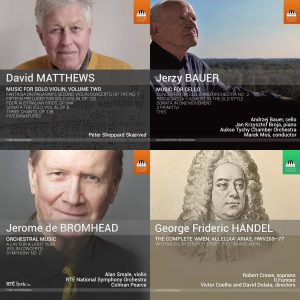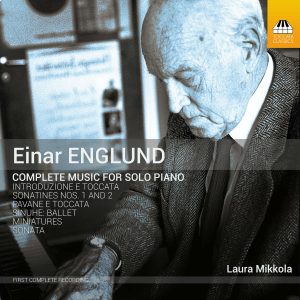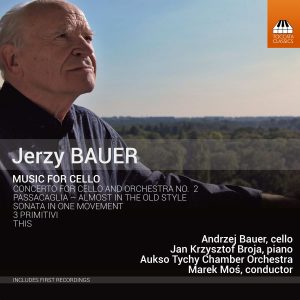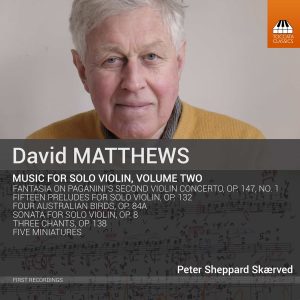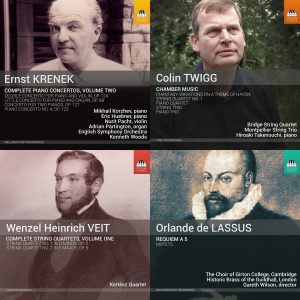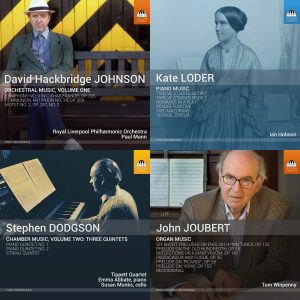Search Results for "Space Wolf: The First Omnibus mp3 torrent" – Page 60
Orlande De Lassus: Responsories for Holy Week
Around 1580 Lassus composed a four-voice setting of the eighteen Responsories for the second and third Nocturnes of Holy Week, probably intended for the services in the private chapel of his employer, Wilhelm V, Duke of Bavaria. In these miniature dramas Lassus skilfully supports the text, as was then required by the Council of Trent, illustrating the human tragedy of the Easter story with exquisite music that is all the more moving for its restraint.
Ars Cantica
Marco Berrini, conductor
Ferenc Farkas: Orchestral Music, Volume Five
Previous releases in the Toccata Classics survey of the music of the Hungarian composer Ferenc Farkas (1905–2000) have generally presented its lighter side, with quasi-Baroque textures and buoyant good humour. This album shows Farkas working on a larger scale and in generally darker mood, using the full resources of the symphony orchestra in a number of powerful and dramatic works, including two movements from a symphony that he later withdrew – but with a lighter bonne bouche to rounds things off.
Gábor Farkas, piano (Tracks 3 – 5)
MÁV Symphony Orchestra
Gábor Takács-Nagy, conductor
September 2017 Bundle
Included in this bundle:
Steve Elcock: Orchestral Music, Volume One
The English composer Steve Elcock (b. 1957) has been writing music since his teens, but with virtually no contacts in the musical world, told no one what he was doing – and thus has evolved a compelling symphonic style entirely his own, combining virtuoso orchestral writing with a sense of momentum that has its roots in the Nordic-British tradition of Sibelius, Nielsen, Simpson, Brian and similar figures. His Third Symphony is a vast canvas generating fierce energy and titanic violence, leavened at times by a sardonic sense of humour. Choses renversées par le temps ou la destruction is a dark symphonic triptych where fragile beauty is constantly at threat from the forces of ignorance. The breezy, buoyant Festive Overture, by contrast, has a Waltonian swagger that barrels on with relentless good humour.
Royal Liverpool Philharmonic Orchestra
Paul Mann, conductor
James Clark, leader
Richard Casey, harpsichord Tracks 4, 6
Sir Donald Tovey: Chamber Music, Volume Two
The exploration of Sir Donald Tovey’s music on Toccata Classics continues apace with two highly contrasted works: the bright, Classically oriented Variations on a Theme by Gluck, Op. 28, for flute and string quartet written in 1913 and the Piano Quintet from thirteen years earlier – an expansive, Brahmsian work of symphonic scale: it is almost an hour in length.
Ormesby Ensemble
Sarah Brooke, flute (Tracks 1–7)
Robert Atchison, violin
Jacqueline Hartley, violin
Bill Hawkes, viola
David Jones, cello
Olga Dudnik, piano (Tracks 8–11)
August 2017 Bundle
Included in this bundle:
Helen Hopekirk: Piano Music
The Scottish musician Helen Hopekirk (1856–1945), regarded as one of the major concert pianists of her generation, also made a lasting contribution as a piano teacher in Boston after her emigration in 1897. As a composer, she forged an intriguing path by turning to the music of her native country as the wellspring of her creativity: the early pieces can sound like Brahms in the Highlands, and her later works marry Debussyan Impressionism with Hebridean folk-music, to evocative, touching and exhilarating effect.
Gary Steigerwalt, piano
Gerard Schurmann: Chamber Music, Volume Three
This is the third Toccata Classics album of the chamber music of Gerard Schurmann, born in the former Dutch East Indies in 1924, British citizen through wartime service in the RAF and now resident in Los Angeles. His two piano quartets, downstream from Bartók, Shostakovich and Britten, present a wide range of moods, from broad and stately tempos to passages of driving energy and excitement. Their quasi-symphonic ambit is contrasted with the tart miniatures of the Serenade for solo violin and the tail-chasing vivacity of Two Violins.
Lyris Quartet
Alyssa Park, violin Tracks 1–3, 13–21
Shalini Vijayan, violin Tracks 16–21
Luke Maurer, viola Tracks 1-3, 13-15
Timothy Loo, cello Tracks 1-3, 13-15
Martin Beaver, violin Tracks 4-12
Mikhail Korzhev, piano Tracks 1-3, 13-15
July 2017 Bundle
Included in this bundle:
June 2017 Bundle
Included in this bundle:
May 2017 Bundle
Included in this bundle:
- Jerome de Bromhead: Orchestral Music
- Jerzy Bauer: Music For Cello
- George Frideric Handel: The Complete ‘Amen, Alleluia’ Arias
- David Matthews: Music for Solo Violin, Volume Two
*No HDWAV for TOCC0385
Einar Englund: Complete Music for Solo Piano
Einar Englund (1916–99) was not only one of Finland’s major symphonists; he was also one of his country’s most important pianists and was destined for a career as a virtuoso until, as a soldier, he damaged a finger in a battle against the invading Russians. He wrote surprisingly little for his own instrument, but the works he did produce glitter with a Prokofievan steely strength and textural clarity, animated with the ironic humour that was typical of the composer himself.
Laura Mikkola, piano
Jerzy Bauer: Music for Cello
Jerzy Bauer (born in 1936) is one of the leading Polish composers of the generation after Lutosławski and Panufnik. Since his son Andrzej is one of the leading cellists of the current generation, it is hardly surprising to find that music for cello figures prominently in his large output, its mild modernism showing a respectful engagement with the music of the past. And the second of his two cello concertos demonstrates that he is fully aware that the cello is the singing instrument par excellence.
Andrzej Bauer, cello
Aukso Tychy Chamber Orchestra (Tracks 1–3)
Marek Moś, conductor (Tracks 1–3)
Jan Krzysztof Broja, piano (Tracks 4–9)
David Matthews: Music For Solo Violin, Volume Two
David Matthews and Peter Sheppard Skærved have been collaborating on a series of works for violin for many years now, with Matthews setting Sheppard Skærved formidable technical challenges, and Sheppard Skærved surprising Matthews by finding a way to overcome the difficulties in his path. And behind all the pyrotechnics, this collaboration is generating one of the largest, and most musically rewarding, body of compositions for solo violin by any living composer.
Peter Sheppard Skærved, violin
April 2017 Bundle
Included in this bundle:
Stay In the Know
JOIN THE TOCCATA NEWSLETTER
"*" indicates required fields
By visiting our site, you agree to our privacy policy regarding cookies, tracking statistics, etc.
